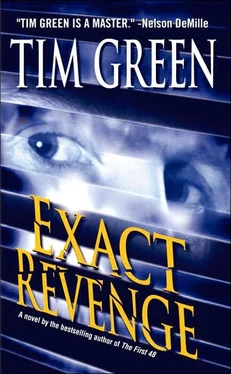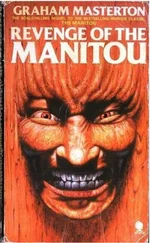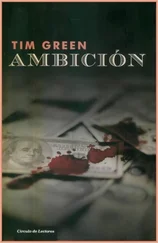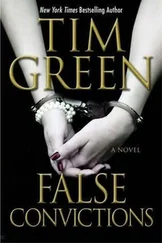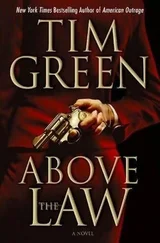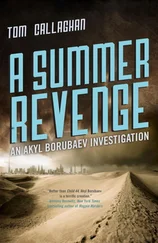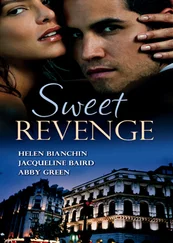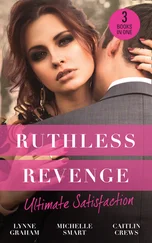“If someone takes your cigarettes, you smash their hand into jelly in a doorjamb. They push you, you break their knees. Touch your food, you gouge out their eyes. Someone tries to make you his punk? You kill him. Believe me, it’s self-defense. Whatever it is they did to you? You exact a revenge that’s ten times worse, a hundred times if you can. That, they respect.”
It’s silent between us for a while. I hear my stomach rumble.
“What did they do to you when you hit that guy?” I ask.
“I got out of the box in 1970, just before the riot. I didn’t have to hurt anyone else until 1979. Killed him with antifreeze.
“That punk today? Dumbass Colombians. I poisoned one of them two years ago. That’s why I’m here. The other ones sent that kid in here to get me before I get out of SHU. Scared. They’ll keep low now, and no one’s going to touch you either. That’s the game. You don’t have to be a mole. You can bunk with me.”
I laugh again.
“What are you?” he says. “Some homophobic?”
“I’m fine right here,” I say.
“What about books?”
“What about them?” I ask.
“You can’t read in the hole.”
“I got my own dreams,” I say.
“Books are more than just dreams,” he says. “Books are like a mirror… for your soul. You can see yourself. Keep yourself neat and clean. You need that for when you get out. To fit in.”
“There’s no sense in getting out,” I say.
“No sense?” he says, dropping his voice into an urgent whisper that only I can hear. “What are you, certifiable?”
“In, out,” I say. “Jail is jail. I like it okay in my own space. I don’t care what my soul looks like.”
“I’m not talking about jail, kid,” he says. “I’m talking about out. Outside the wall. Freedom.”
“Don’t even say that,” I say, my heart thumping before I know it. I am whispering too. “I can scream louder than that guy next to you.”
“Why not say it if it’s true?”
“It’s not true,” I say. “There’s no way out.”
“Kid,” he says, “you have no idea…”
I wrap my fingers around the bars. My lips are pressed to the steel and I taste its tang through the chips in the paint.
“You’ve been here for more than forty years,” I say in a hiss. “Don’t play with me, you crazy old coot.”
It’s quiet for a time. My ears start ringing and I wonder if I have imagined it all.
“I’m not playing,” the old man says in a whisper that only I can hear.
“Who are you?”
“Lester Cole,” he says, still low. “Thief and part-time murderer.”
“How?” I ask. “How can you do it?”
“They like me here,” he says. “They trust me. I fix everything. They get a jammed-up pipe and they need a man to go down into the catwalk and wade through the shit, Lester will do it. Anytime. Day or night. Just ask Lester.
“According to the warden, the job of the prisoners is to serve their time and maintain these buildings. I’m good at it. Plumbing. Electric. Air ducts. So I have… opportunities.”
“How?”
“Patience,” he says. “We have time.”
“Forty more years?”
“A lot sooner than that, kid,” he says. “Sooner than you think.”
CENTRE STREET. North of Wall Street. South of Chinatown. A powerful street, but relatively unknown outside the legal profession in New York City. Foley Square, and in the middle of it all, a neoclassical monster. Broad stone steps leading to massive fluted columns and justice. Beyond the façade, nearly two dozen men and women. Federal court judges for the Southern District of the Second Circuit. Appointed for life. The best and brightest, insulated from the political system to ensure their unbiased interpretations.
Villay didn’t have the nicest chambers, but he didn’t have the worst either. The crown molding needed refinishing, but the ceilings were twelve feet high and he had a high-backed leather chair. His clerk was Harvard. Third in his class. Thin, bookish, and blond like the judge himself had once been. Judge Villay ran the tip of a pocketknife under his thumbnail as he listened to the upcoming docket of cases. His broad forehead furrowed.
“What was that?” he said, putting his little feet down on the floor and looking up at his clerk over the silver reading glasses perched on his elfin nose.
“An appeal,” he said. “ Raymond White v. the State of New York ?”
“On what grounds?”
“Racial discrimination. Native American. Not a representative jury.”
“Ha!” Villay said, smiling and wagging his head. “I’ll be damned. Can’t take it. Total bullshit, though. Who’s the attorney? Not Dan Parsons still?”
The clerk looked down and nodded. “Yeah. How’d you know?”
“It was my case,” Villay said, straightening his back and widening his eyes so that the clerk would stare into their torn pupils. “Murder one. Life without parole. Guy was about to get the Republican Party nomination for an empty congressional seat. Would have won. Big deal back then, part Native American and all that. But discrimination? Parsons was his partner. Must have run out of good ideas. What a fucking joke. Send it to Kim Mezzalingua. She’ll get a kick out of it and send Parsons packing as fast as you can say ‘summary judgment.’
“What else?” Villay said, returning to his nails.
The clerk cleared his throat and continued to read the upcoming docket until he reached the end.
“Make sure I’ve got time for that drug trafficking trial,” Villay said, opening the cabinet for his coat with one hand and pointing at his clerk with the other. “Schedule a good ten days. I don’t want it rushed. I’m sick of those bastards poisoning our kids.”
He picked up his briefcase just as his secretary stuck her head inside the door.
“It’s Ivan Lindgren,” she said in an urgent whisper.
“Shit,” Villay said. “Tell him I’m gone. Pain in the ass.”
He turned and scuttled out the door that led to the back corridor. The way was longer, but worth it if he didn’t have to see Lindgren. Outside, there was a light gray rain in the air, and Villay hurried to the curb with his briefcase over his head. He slid into the back of his Town Car, lifted the Post from the seat, and told his driver, Jack, to go.
Jack started, then lurched to a stop. Villay crackled the paper down.
“What the hell?”
Through the swish of the wipers he saw Lindgren, his thick brown mustache dripping, his lined forehead beaded with rain, standing tall directly in front of the car. Villay cursed under his breath.
“Go, Jack. He’ll move.”
The driver’s shoulders were hunched over and he clutched the wheel, trembling.
“I… can’t.”
Villay slapped down his paper, huffed, and rolled down the window several inches.
“Get out of the way, you lunatic!” he shouted.
“You talk to me, damn it!” Lindgren shouted back.
Villay looked up and down the sidewalk. Despite the rain, people were stopping to stare.
“ What ?” he said through his teeth.
Lindgren circled the car, keeping his hands on its shiny waxed surface until his face was in the open space of the window and his fingers were clutching its edge.
“Five years,” Lindgren said in a hiss. “They built that case for five years and you ruled that wiretap inadmissible ?”
Villay stabbed his finger at Lindgren and said, “You be careful. You don’t talk to a judge that way. I don’t care who your father is. I’m a federal judge. You’re a government attorney. I’ll blackball you twenty ways to Sunday.”
“I’ll have you…”
“What?” Villay said, moving his face closer to Lindgren, smiling.
Читать дальше
